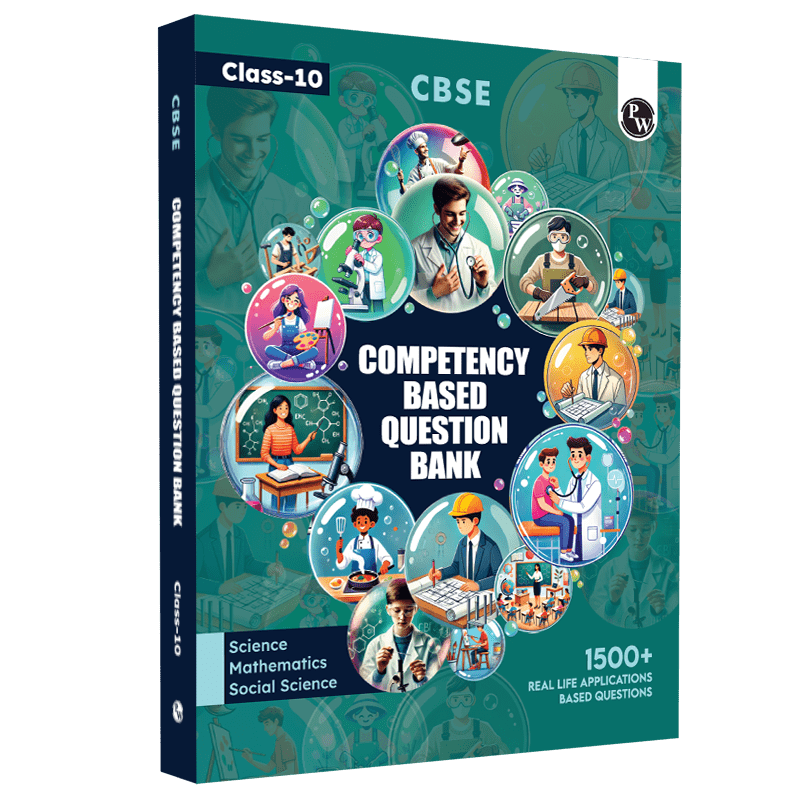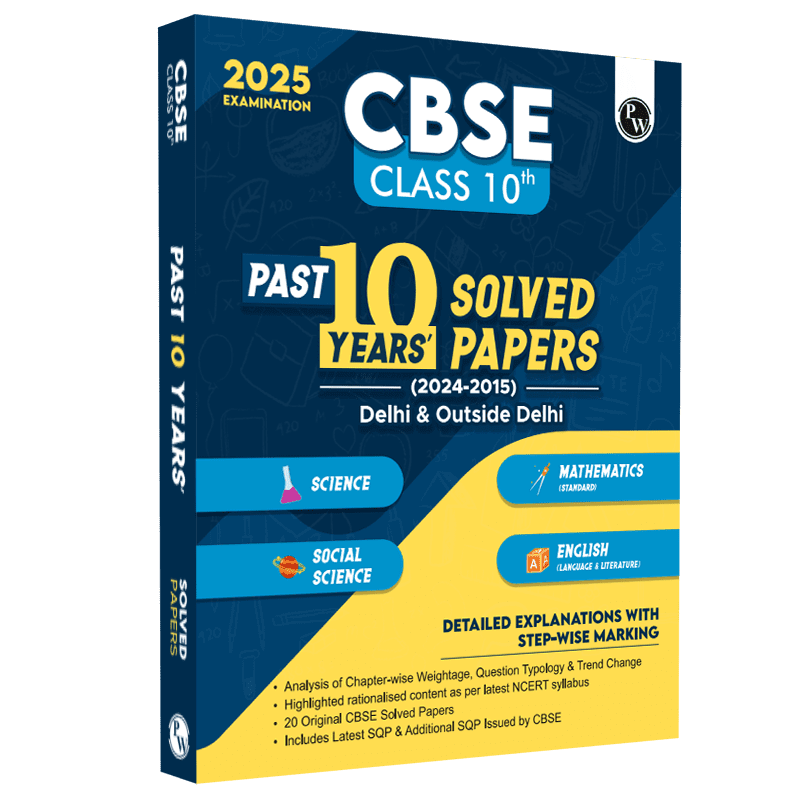Dos & Don’ts During Class 10 Board Exams 2024-25

Dos & Don’ts During Class 10 Board Exams 2024-25:- As the CBSE Class 10 exams for 2024-25 approach, students need to be aware of the new guidelines set by the board. These guidelines are important for ensuring a smooth exam process and helping students understand what to expect.
The new CBSE guidelines cover various aspects, such as exam patterns, assessment methods, and rules for Class 10 students. Students need to stay updated with these guidelines to avoid any confusion and ensure they are well-prepared for the exams. Let's take a look at the key changes in the CBSE new guidelines for the 2024-25 academic year.
Check out: CBSE Class 10th Previous Year Papers
CBSE New Guidelines 2024-25
1. Twice-a-Year Board Exams:
-
CBSE will conduct board exams for Classes 10 twice a year:
-
First exam: November-December 2024
-
Second exam: February-March 2025
-
The system is optional; students can choose to appear for only one exam if satisfied with their score.
-
Final results will be based on the higher scores from the two exams.
2. Attendance:
-
The mandatory attendance rule remains at 75%.
-
A 25% relaxation will be allowed in special cases, such as medical emergencies or participation in national/international events.
Check out: CBSE Class 10th Sample Papers
Dos & Don’ts During Class 10 Board Exams 2024-25
With the CBSE new guidelines 2024-25 in place, it's essential to not only focus on exam preparation but also on effective paper presentation in board exams. Here are some important dos and don’ts to keep in mind during the Class 10 board exams 2024-25 to ensure optimal performance.
Dos:
-
Stay Calm and Confident:
According to the new CBSE guidelines for Class 10 2024-25, a calm approach helps maintain focus. Confidence will help you manage time effectively and tackle challenging questions. -
Follow the Exam Pattern:
Stick to the CBSE new guidelines regarding the exam pattern. Ensure you understand the structure, such as how many multiple-choice questions or descriptive questions will appear. This helps in how to present answers in board exams. -
Read Instructions Carefully:
Ensure you read all instructions on the question paper. Knowing whether you're supposed to write long or short answers for particular sections will help in paper presentation in board exams. -
Time Management:
Divide your time wisely among all sections, keeping in mind the marks allotted for each. Topper paper presentation of paper in board exam usually follows an organized approach, where easy questions are tackled first, leaving complex ones for later. -
Check Your Work:
Before submitting your answer sheet, take a few minutes to check your work. Ensuring everything is answered and presented clearly is crucial. A well-presented answer sheet will help you score higher marks. -
Stay Hydrated and Eat Well:
Follow the CBSE new guidelines for Class 10 2024 to 2025, which emphasize the importance of physical and mental health during exam time. A healthy body leads to a focused mind. -
Arrive Early:
Arrive at the exam centre with plenty of time to spare. This will help you relax and settle into the exam environment without feeling rushed.
Don’ts
-
Don’t Panic: If you find a question difficult, don’t spend too much time on it. Use CBSE new guidelines for pacing yourself and focus on answering questions you know well before returning to tougher ones.
-
Don’t Skip Revision: Last-minute cramming can lead to confusion. Stick to a revision schedule and how to write answer sheet in board exam for better time management. Review your key topics without overloading yourself at the last moment.
-
Don’t Waste Time on Unanswered Questions: If you’re unsure about an answer, move on to the next question. Managing time well is a key factor in topper paper presentation. Leave difficult questions for later but don’t leave them unanswered.
-
Don’t Ignore the Marking Scheme: Understand the new CBSE guidelines on how the exam will be marked. Focus on answering questions according to their weightage. Write answers that are to the point and within the given space.
-
Don’t Overuse Erasers: Paper presentation in board exams should be neat and clean. Avoid excessive erasing, which could make your answer sheet look untidy. Write clearly and neatly the first time.
-
Don’t Bring Unauthorized Items: Follow the CBSE new guidelines on what you can bring to the exam hall. Avoid bringing mobile phones, calculators, or study material, as these are strictly prohibited.
-
Don’t Compare Answers with Others: After the exam, avoid comparing answers with fellow students. Every student has a different approach, and it could cause unnecessary stress. Focus on your answer sheet presentation.
Also Check: CBSE Class 10th Question Banks
How to Write Answer Sheet in Board Exam
Writing a well-structured answer sheet is crucial to scoring well in your Class 10 board exams. Your presentation can make a significant difference in how your answers are evaluated. Here’s how you can present your answer sheet effectively, focusing on important areas, subjects, and topics:
1. Present Answers Neatly and Clearly
-
Write Legibly: Always write in neat and legible handwriting. Make sure each word is easy to read.
-
Use Bullet Points for Clarity: For long answers, break down the information using bullet points or numbering. This improves the clarity of your answer and helps the examiner to evaluate it more quickly.
-
Use Proper Headings/Sub-headings: For subjects like Social Science or English, use headings and subheadings where necessary. For example, in History, break your answer into 'Introduction', 'Main Points', and 'Conclusion'.
2. Manage Space Wisely
-
Use the Given Space: Don’t overcrowd the space with long paragraphs. Stick to the space provided for each question and avoid writing too much or too little.
-
Leave Margins: Leave a small margin on the left side of the page for clarity. This also gives a neat look to your answer sheet.
-
Stick to the Word Limit: For descriptive questions, ensure your answers are not too lengthy or too short. Stick to the word limit as given in the question.
3. Be Concise and to the Point
-
Direct Answer: Always give a direct answer to the question first, then elaborate if needed. Don’t waste time on irrelevant details.
-
Avoid Over-Explanation: For example, in subjects like Maths, always show your steps clearly. In Science, include key formulas and units where required, but avoid unnecessary elaboration.
-
Use Diagrams: Where applicable, use diagrams to explain concepts (e.g., in Biology or Physics). A well-labeled diagram can fetch you extra marks.
4. Review and Correct Mistakes
-
Proofread Your Answers: After completing the paper, take a few minutes to review your answers. Check for any spelling errors, incomplete answers, or questions you might have missed.
-
Avoid Striking Out: If you need to make a correction, use a simple line or a correction fluid as per the CBSE new guidelines. Overuse of corrections can make your answer sheet look untidy.
5. Focus on Important Subjects and Topics
-
Mathematics: Always show step-by-step solutions for problems. Mark your final answer clearly. Don’t skip steps, even if they seem simple.
-
Science (Physics, Chemistry, Biology): Include definitions, units, and formulas where needed. Use neat diagrams for processes like digestion or photosynthesis.
-
Social Science: Organize your answers into points, and if required, use dates and facts to support your answer.
-
English: For literature answers, refer to the specific parts of the text. Provide detailed explanations for poetry or prose, but stay relevant to the question.
-
Languages (Hindi, Sanskrit, etc.): Stick to simple, correct sentence structures. Focus on grammar, punctuation, and vocabulary.
6. Manage Time Effectively
-
Start with Easy Questions: Start with the questions you are most comfortable with. This helps build confidence and saves time.
-
Don’t Overthink: If you don’t know the answer to a question, move on to the next one. Leave it for later if time permits.
7. Stay Calm and Confident
-
Mindset Matters: Keep a positive mindset throughout the exam. A calm and composed approach helps you think clearly and recall information better.
Check out: CBSE Class 10th Revision Books
Dos & Don’ts During Class 10 Board Exams 2024-25 FAQs
-
What should I do before entering the exam hall for the Class 10 board exam?
-
Ensure you arrive early with all required documents, including your admit card and stationery. Avoid bringing mobile phones or any unauthorized items.
-
How should I manage my time during the exam?
-
Start with the easier questions to gain confidence. Allocate time based on the marks for each question and ensure you complete all sections within the allotted time.
-
How can I improve the presentation of my answer sheet?
-
Write neatly and legibly, use bullet points, headings, or subheadings to organize your answers, and avoid overcrowding the page with unnecessary text.
-
What should I do if I find a question difficult?
-
Stay calm and attempt the easier questions first. If needed, skip the difficult ones and return to them once you've completed the rest.
-
Is it important to follow the marking scheme while answering questions?
-
Yes, always keep the marking scheme in mind. Allocate more time and effort to questions with higher marks to maximize your score.












